5 Times Using Your Debit Card Will Cost You More, Finance Experts Say
These are the instances when you should use cash or a credit card.
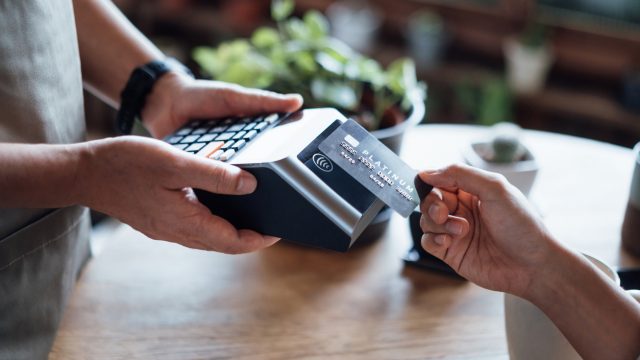
Having a debit card in your wallet comes as a major convenience. The small pieces of plastic can safely replace wads of cash while avoiding some of the overspending risks or fees associated with a credit card. But just because technology has made it easier to swipe them in more places than ever doesn't necessarily mean they're always the best option. Read on for the times when using your debit card will cost you more, according to financial experts.
READ THIS NEXT: Never Use Autopay for These 6 Bills, According to Financial Experts.
1
When you're missing out on potential rewards opportunities
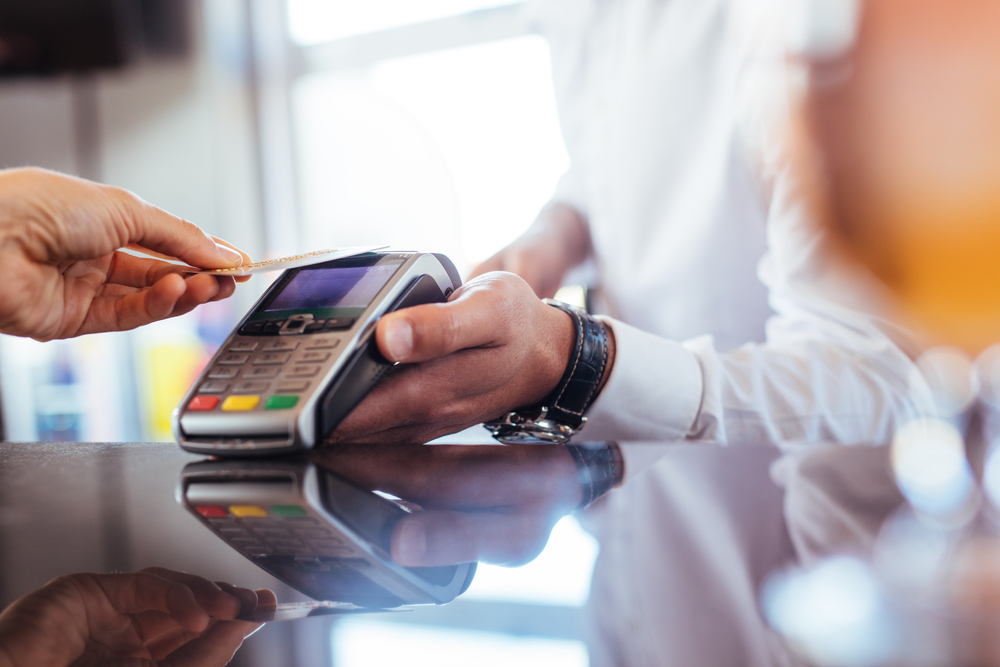
Even if you're on a budget, spending money on necessities is still a fact of life. That's why experts say you should be sure you're seeing the benefits of money going out by using the correct form of payment to get something back potentially.
"Using a debit card over a credit card to pay for a purchase could cause you to miss out on earning valuable rewards in the form of cashback, points, or airline miles," consumer expert Andrea Woroch tells Best Life. "Review your spending habits to figure out where you spend the most and find a credit card that gives you more rewards for that category to maximize your earning potential."
2
When you don't have much in your bank account
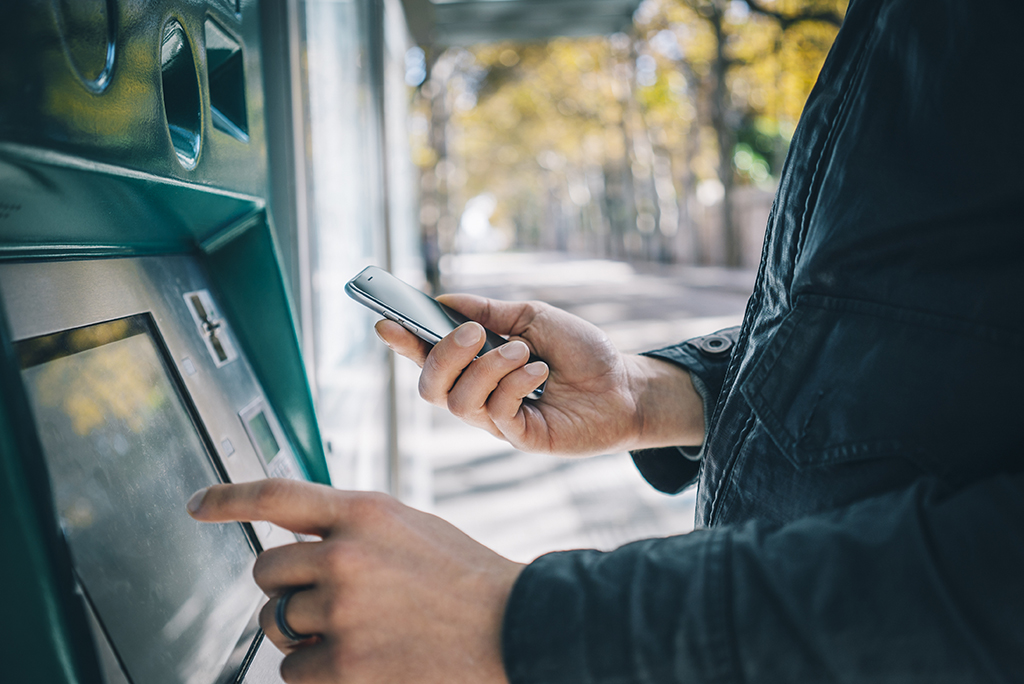
One of the benefits of using a debit card over a credit card is that you can avoid overspending. But while this is true for long-term budgeting, you can also ultimately pay a lot more if you swipe while you're low on funds.
"When you spend more than you have in an account, the bank can charge an overdraft fee, ranging anywhere from a few dollars to dozens of dollars," warns Riley Adams, founder and CEO of WealthUp.com. "Make a few purchases that overdraw your account in a row and it could result in hundreds of dollars in costly fees."
Fortunately, there's a relatively easy way to avoid this situation.
"Make it a habit to check your checking account balance on a regular basis and move money from savings to checking before you start spending," says Courtney Alev, consumer financial advocate at Credit Karma. "You can also opt out of any overdraft protections your bank puts on your account so that your card is declined if you don't have enough money to make a purchase."
READ THIS NEXT: Always Use Cash for These 5 Purchases, Financial Experts Say.
3
When dealing with certain businesses
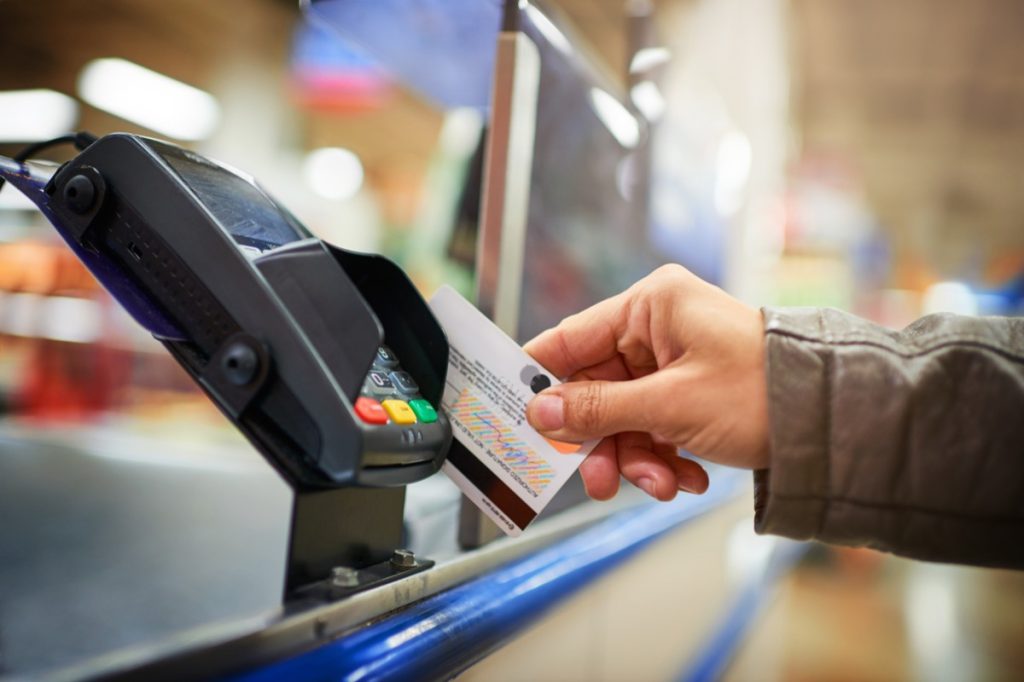
Running your debit card during a purchase is unquestionably a convenience for the customer. But for the business accepting your payment, it means they may be making less off the sale when you swipe or tap.
"Small retailers, utility companies, and other businesses may charge a processing or convenience fee when paying with debit rather than cash or check," says Woroch.
Before you agree to eat the extra cost, review the potential fees before paying to decide if it's worth it. "Otherwise, find a nearby ATM that partners with your bank or pop into a large drugstore or grocery store to request cash back to save," she suggests.
4
When you need purchase protection.
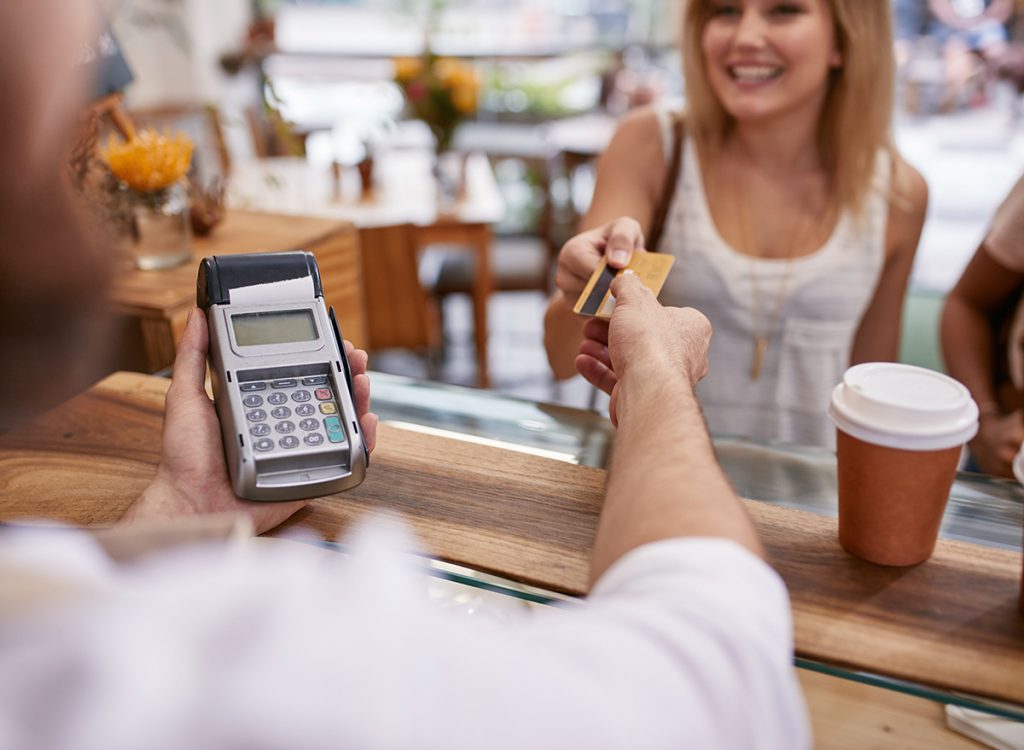
At face value, using your debit card and credit card can feel practically identical. But similarly to losing cash in your wallet, your debit card often has relatively limited protections compared to credit cards—meaning you could be on the hook for purchases you didn't even make.
"If you report your debit card missing before any unauthorized charges are made, you're not responsible for unauthorized transactions," Alev says. "But, if you report it lost or stolen within two business days of learning about the loss or theft, your maximum financial loss is the lesser of $50 or the total amount of unauthorized transfers," adding that if you wait even longer, you could be responsible for $500 or more.
And when it comes to costly purchases you do make, you could miss out on the extra warranties or other benefits by swiping the wrong card. "Many credit cards offer additional consumer protections such as purchase protection that you're unlikely to get from a debit card," she says
For more financial advice delivered straight to your inbox, sign up for our daily newsletter.
5
When using your card abroad
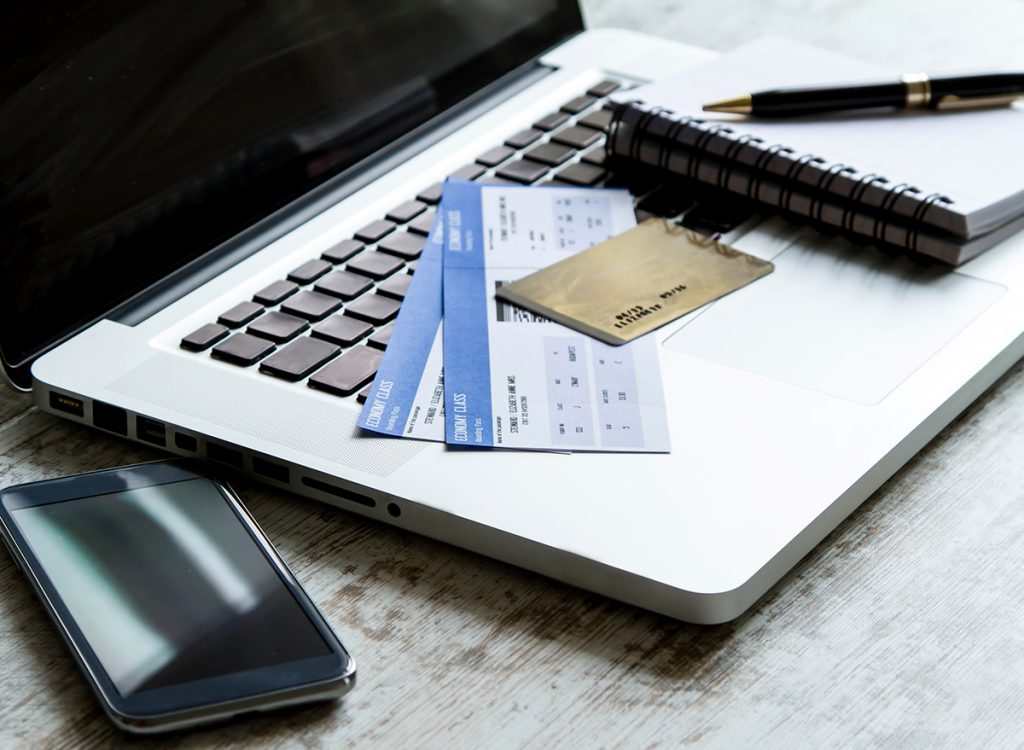
Swiping to spend outside of the U.S. has the immediate benefit of avoiding costly currency exchanges. However, using the wrong type of card could chip away at your travel budget faster.
"Some debit card transactions will incur transaction fees or foreign transaction fees for using it abroad," says Adams. "Likewise, attempting to withdraw cash from an overseas ATM might come with a hefty fee as well."
Instead, Adams suggests using credit cards that don't charge foreign transaction fees. "And besides potentially saving you money, they're more secure from fraud and theft," he adds.
Best Life offers the most up-to-date financial information from top experts and the latest news and research, but our content is not meant to be a substitute for professional guidance. When it comes to the money you're spending, saving, or investing, always consult your financial advisor directly.





















